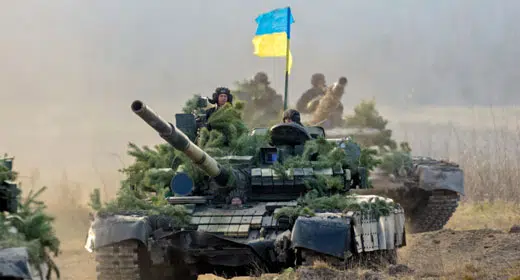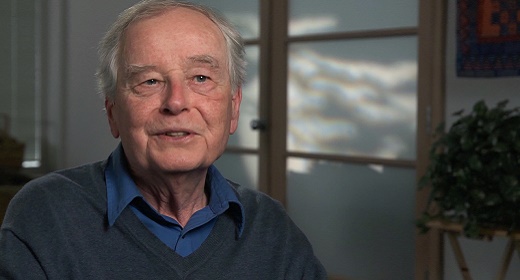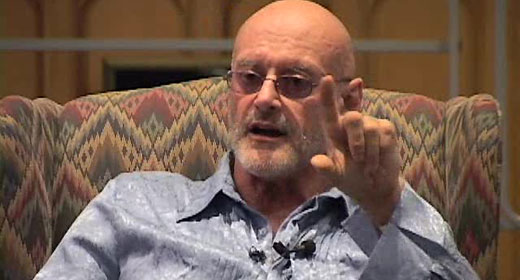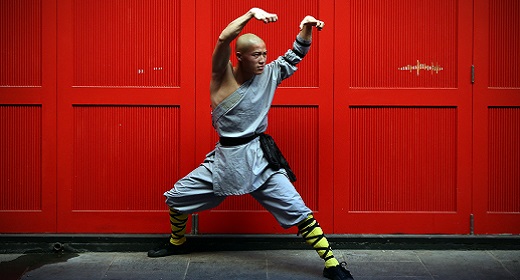by Kiri Westby: It’s easy to be overwhelmed by the news this week, to feel helpless against the suffering of forty-five million Ukrainians,
 to want to look away. While it’s important to prioritize our mental health—and this means taking measured breaks away from the coverage—our mindfulness training implores us not to close our eyes, nor quiet our voices.
to want to look away. While it’s important to prioritize our mental health—and this means taking measured breaks away from the coverage—our mindfulness training implores us not to close our eyes, nor quiet our voices.
So how do we relate to the sudden war in Ukraine without being overwhelmed?
My experience of working inside war zones for many years—coupled with a lifetime of Buddhist meditation practice—taught me that we must walk the mental-middle-path between hyper-vigilance and ignorance. We must commit to spending some of our energy amplifying the cries for peace and sanity in the the world, while maintaining space for refilling our buckets with self-care when needed. This careful dance will look different for everyone but, above all else, we must not fall into the seductive trap of ignoring the pain and suffering of our fellow human beings altogether. Our commitment to peace demands it.
One thing that always struck me when working within conflict zones, is how un-M.A.S.H.-like war actual looks. Rarely does conflict appear like an open battlefield of soldiers but, rather, a chaotic scene of everyday people carrying on their lives as best they can alongside the unseen manouvres and strategies of war. For most Ukrainians right now, there simply isn’t the option of fleeing, and so they must endure life amidst a confusing war and adapt quickly to a new survival paradigm. If you’re anything like me, you have put yourself in their shoes once or twice this week, cried for the loss and pain of all those families, and came out seeing your own surroundings slightly differently.
This is the hidden benefit of awakening to war; in that it immediately brings our relative peace into focus. Suddenly, simple things like running water and heat take on a whole new value. We appreciate our loved ones and we count our blessings. Often, there is a tendency to feel guilt or shame when you first look upon all that you have anew, or compare your life to those who are drastically suffering. But if we can turn those emotions into action and do something, no matter how small, to help, then we begin to feel like we are part of the solution. We can leverage those relative privileges by using our platforms, our spheres of influence, and our resources to support those on the ground helping. Once we build such daily actions into our mindfulness practices, the same way we commit to sitting on a meditation cushion or practicing yoga, then we experience a balance between overwhelm and avoidance, one that we can maintain for the long haul. This is how we can awaken to war without losing our peace.
Relating to war also gives us the opportunity to examine how important loving-kindness/self-love (Maitri) and community (Sangha) are to maintaining peace within humanity. The Buddha taught that our entire world is interconnected and, thus, how we live our lives has inescapable results (Karma). The root causes of suffering—ignorance, attachment, and aversion—must be realized and tamed if we are to avoid greed, stupidity, and egotistical power-tripping…all of which, alongside a great lack of lovingkindness, makes a warmonger like Putin. When we work diligently on our own self-love, and then extend that love to others generously, we combat the forces that lead to war and shore-up the chorus of voices crying out for peace.
People forget that The Buddha himself was an Activist, that it was his resistance to living a life of greed or profiting off the suffering of others, which made him a Radical in his time. That same energy of resistance lives on today in the thousands of anti-war protesters on the streets of St. Petersburg, in the grandmothers of Kyiv defending their homes against a psychopathic tyrant, and also within you and I. So, while it is uncomfortable, and even taxing, to relate directly to the realities of war, it is our lineage of peacemaking, and our commitment to mindfulness, that implore us to do so. We bring our inner peace to the frontlines of war by simply opening our eyes widely, raise our voice loudly, and act boldly on behalf of the innocent.
Meet you on the frontlines of peace,
Kiri
Click here to support the urgent financial needs of Ukrainian Women’s Organizations responding to the needs of women and children on the ground.
Click here to learn even more ways to support Ukrainians today, no matter where you are or what your budget.








































